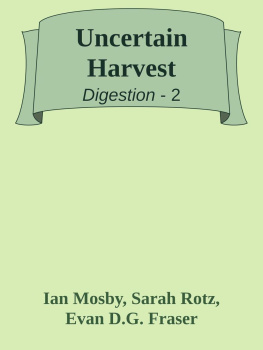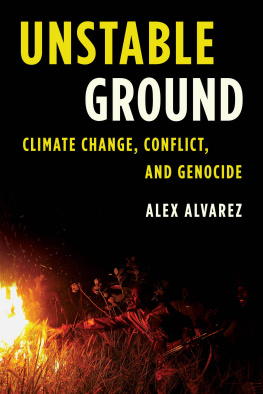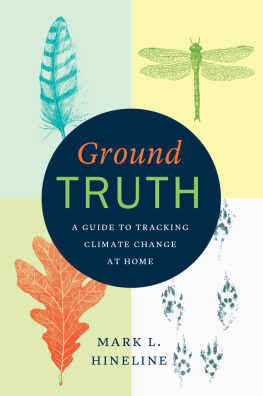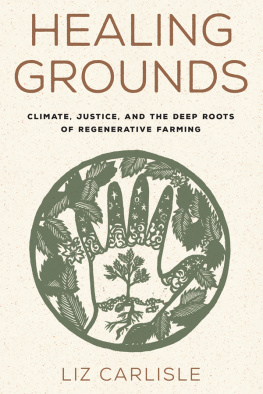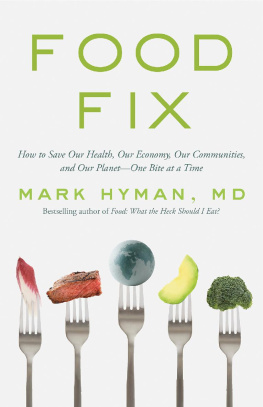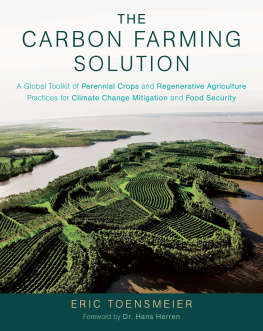Thank you for downloading this Simon & Schuster ebook.
Get a FREE ebook when you join our mailing list. Plus, get updates on new releases, deals, recommended reads, and more from Simon & Schuster. Click below to sign up and see terms and conditions.
CLICK HERE TO SIGN UP
Already a subscriber? Provide your email again so we can register this ebook and send you more of what you like to read. You will continue to receive exclusive offers in your inbox.
We hope you enjoyed reading this Simon & Schuster ebook.
Get a FREE ebook when you join our mailing list. Plus, get updates on new releases, deals, recommended reads, and more from Simon & Schuster. Click below to sign up and see terms and conditions.
CLICK HERE TO SIGN UP
Already a subscriber? Provide your email again so we can register this ebook and send you more of what you like to read. You will continue to receive exclusive offers in your inbox.
The burning sand will become a pool,
the thirsty ground bubbling springs.
In the haunts where jackals once lay,
grass and reeds and papyrus will grow.
ISAIAH 35:7
(NEW INTERNATIONAL VERSION)
FOREWORD
W hat do I want to eat? Its a question most of us ask ourselves on a daily basis, but to what extent do we consider its implications? Our food choices have enormous impact. First and foremost, they have the power to transform our personal health and well-being, for better or worse. But as I have learned, in my role as cofounder and CEO of Whole Foods Market, the impact of our food choices reaches far beyond our personal health and well-being. They affect our society and our planet in numerous ways. Food is deeply intertwined with our beliefs, our ethics, our culture, our economics, and our politics. In addition, as the book you are holding highlights, it is inseparable from our agricultural systems and the essential element upon which they depend: the soil.
In this impressive and timely volume, Josh Tickell invites us to open our eyes to the beauty and significance of what lies beneath our feet. He makes a persuasive case that the importance of healthy soil is underappreciated, and as a result, the vitality of our agricultural ecosystems is under threat. Scientists estimate that it takes nature about five hundred years to create one inch of topsoil. Today, farms are losing topsoil at an alarming rateperhaps ten times faster than nature is regenerating it. Soil just might save us, Tickell writes, but we are going to have to save it first.
Over the last century, we have witnessed the rise of an industrial-agricultural complex that has taken food production to a scale that was previously unimaginable. It has enabled us to produce enormous quantities of food at lower and lower prices and has been an important contributor to increasing the worldwide standard of living and lessening poverty. Unfortunately, the negative unintended consequences of the chemical industrialagricultural system have also been enormous. Practices such as the intensive use of chemical pesticides, aggressive tilling, and a focus on single crops (or monocultures) have denuded the rich biodiversity of Americas bountiful soil and contributed to a host of interconnected environmental problems.
There is no shortage of sobering stories about the industrialization of agriculture and its environmental impact, and Tickell recounts many of them in these pages. But even while shining a light on some of the uglier sides of our food system, the book never succumbs to pessimism. Rather, it presents what Tickell describes as a unique opportunity to relearn and to truly understand our powerful role in the biological matrix of the planet on which we live. In fact, Kiss the Ground is a manifesto for a new disruptive form of regenerative agricultureone that is commercially viable as well as environmentally sustainable.
Im personally hopeful about our capacity to make the shift to an agricultural system that nourishes both people and planet. And I believe that business, while its contributed to many of the challenges that were collectively facing, must also be part of the solution. After all, business is one of the most dynamic and innovative institutions we have. It can be tempting, when surveying the downsides of modern industry, to harken back to a simpler preindustrial time when humans supposedly lived in harmony with nature and closer to the rhythms of the land. However, I dont believe in going back, even if it were possible, and it is not. I am a firm believer in progress, in potential, and in the redemptive power of human ingenuity and creativity.
In the last few decades, I have watched a generation of entrepreneurs begin to revolutionize Americas food systems and sensibilities in completely unexpected ways. Im proud that Whole Foods Market has been a leader in this regard, and made things that were once considered fringe now commonplace. Theres a long way to go, but as a conscious capitalist, Im consistently inspired by the ability of individuals and businesses to disrupt traditional and established systems for the better. And this shift in agriculture is driven by the food choices people make every dayby more informed and conscious answers to the question What do I want to eat?
Tickell includes a host of practical, everyday suggestions for making choices that can power change. Interestingly, his dietary advice happens to align closely with the dietary habits that have been scientifically proven to optimize individual health and longevity (as outlined in my recent book The Whole Foods Diet ). Eat more whole plant foods and less animal foods, and eat real, unprocessed foods. Healthy eating is a win-winbetter for you and better for the planet.
These types of win-wins, I believe, are the hallmarks of sustainable solutions. In Conscious Capitalism , I proposed (together with my coauthor, Raj Sisodia) that a more evolved model of capitalism recognizes the many stakeholders that are critical to a business reaching its full potential. These stakeholders include not only customers and investors, but also team members, suppliers, communities, and last but not least, the environment. Conscious businesses create win-win-win solutions for all these multiple stakeholders. As Tickell argues in this book, regenerative forms of agriculture provide just that: a win-win-win. They reduce costs, increase yield, and sustain the environmental diversity and richness of the land. If he is right, they may even help address the challenges of climate change.
Our science in this respect is young. We are still in the early stages of grasping the complex biochemistry that transfers energy from soil to seed and beyond. Can regenerative agriculture preserve and renew our topsoil while still adequately feeding the Earths billions of people? Can it be commercially viable, as well as environmentally sustainable? Can it, as the books subtitle boldly claims, reverse climate change? This book makes an argument that is worthy of careful consideration.
Big changes require big dreams. Changing the world is rarely easy, or fast. But the world does change. Systems do evolve. Culture does move forward. Pioneers experiment and innovate and disrupt existing paradigms. People become more conscious and make different choices. New truths emerge and take hold. A more ethical and compassionate way forward emerges as we begin to take responsibility for our choices. Kiss the Ground is a book rich with big dreams and important new truths. I look forward to seeing what kind of change in our world it will inspire.
JOHN MACKEY
AUSTIN, TEXAS
APRIL 2017
AUTHORS NOTE
W orking as film directors, my wife, Rebecca, and I, along with the help of many great people, have turned this book into a documentary with the same title: Kiss the Ground . While this book provides a breadth of information that could never be covered in a movie, watching Kiss the Ground is a deeply emotional experience. If you like this book, youll love the movie and vice versa.
Next page

